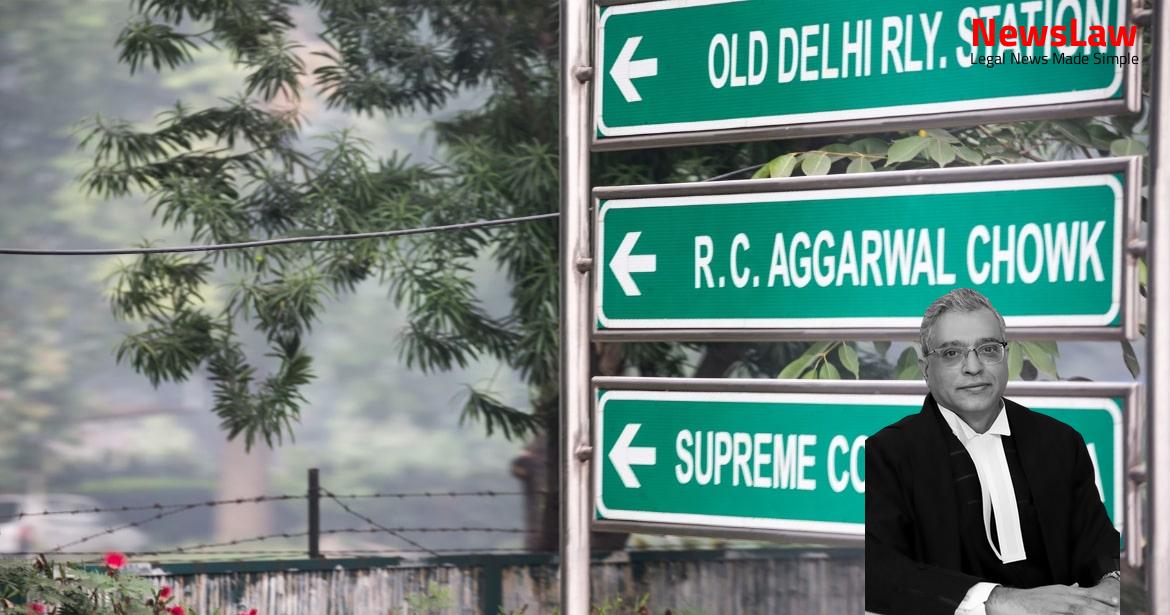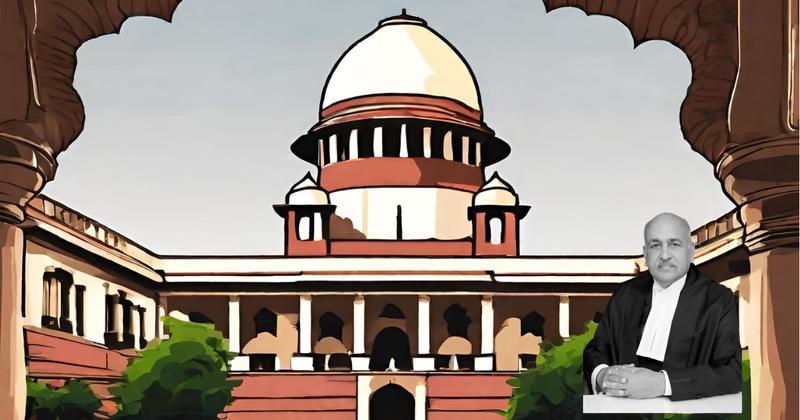Explore a legal case where the court delved into the State’s responsibility in land acquisition matters, emphasizing the protection of property rights and upholding due process. The court’s detailed analysis sheds light on the importance of State accountability in protecting individual property rights and ensuring legal justice is served.
Facts
- The appellants Sukh Dutt Ratra and Bhagat Ram claimed ownership of land in Mauzal Sarol Basach, Tehsil Pachhad, District Sirmaour, Himachal Pradesh.
- The Respondent-State utilized the subject land and adjoining lands for the construction of the ‘Narag Fagla Road’ in 1972-73 without initiating any land acquisition proceedings or providing compensation.
- Following a High Court judgment directing the State to begin land acquisition proceedings, a notification under Section 4 of the Land Acquisition Act was issued on 16.10.2001 and the award was passed on 20.12.2001, setting compensation at ₹30,000 per bigha.
- Ten neighboring landowners initiated proceedings under Section 18 of the Act to enhance compensation for their lands used for the same road construction, leading to an award dated 04.10.2005.
- The High Court made a decision based on a Full bench decision
- The High Court concluded that the matter involved disputed questions of law and fact
- The disputed questions related to the starting point of limitation
- The High Court ruled that these disputed questions could not be adjudicated in writ proceedings
Also Read: Balancing Power and Transparency: Electoral Bonds Struck Down, Disclosure Mandated
Arguments
- Mr. Mahesh Thakur argued that the State unlawfully took the appellants’ lands without following due process of law.
- The appellants relied on the decisions in State of U.P. v. Manohar and Tukaram Kana Joshi & Ors v. Maharashtra Industrial Development Corporation (MIDC).
- It was contended that Tukaram Kana Joshi may be per incuriam due to Digambar, a decision by a larger bench not considered in Tukaram Kana Joshi.
- The State did not dispute that the appellants owned the land taken for Narag Fagla Road construction without compensation.
- The High Court’s dismissal of the writ petition was argued to be in error based on the Air India Ltd. v. Vishal Capoor decision.
- The case of Vidya Devi v. State of Himachal Pradesh was cited with similar facts and circumstances which led to the direction for compensation and statutory benefits.
- Mr. Abhinav Mukerji for the State of Himachal Pradesh argued that the petition was time-barred due to immense delays in approaching the courts.
- The state’s acquisition of lands adjacent to the subject land under High Court directions was highlighted as arbitrary given the appellants’ situation.
- The appellants’ case was compared to adjoining landowners who received compensation and benefits through land acquisition awards in other cases.
- Reference was made to State of Maharashtra v. Digambar, State of Madhya Pradesh & Anr v. Bhailal Bhai & Ors, and Brijesh Kumar & Ors v. State of Haryana.
- Appellants’ land is in Sirmaur District, different from lands in other writ proceedings in Hamirpur district for a separate road.
- Argument that lands in other writ proceedings are not adjoining to appellants’ land.
- Disputed questions of fact related to limitation, road construction, and verbal consent should be addressed in civil court.
- The Narag Fagla road was constructed at the request of appellants and other landowners, with their verbal consent.
- State claims appellants volunteered their land for road construction and did not raise objections or seek compensation until 2011.
Also Read: Recall of Resolution Plan Approval: Legal Analysis
Analysis
- The State has failed to provide evidence of the appellants’ verbal consent or lack of objection to the acquisition of their land.
- The State could not prove that the land was acquired lawfully or that compensation was paid to the appellants.
- The High Court’s findings in 2007 also supported the appellants’ claims.
- The appellants’ land was not adjacent to the property being acquired, but this does not disqualify them from seeking parity.
- The State initiated acquisition proceedings in the 1990s under High Court direction.
- The State’s actions or lack thereof have worsened the injustice against the appellants, leading them to approach the court.
- The court finds the State’s arguments unconvincing and deserving of rejection.
- Precedents on delay and laches vary, but in this case, the court favors the appellant-land owners.
- The State selectively initiated acquisition only on lands of petitioners who approached the court earlier, avoiding responsibility to acquire land as per law.
- The defense of delay must be evaluated based on equitable principles when it does not bar relief by statute limitations.
- Though the right to property is no longer a fundamental right, at the time of land dispossession, it was a constitutional right.
- The State continued to favor only those who approached the courts, neglecting others affected by the same acquisition purpose.
- The appellants were entitled to compensation as they were illegally dispossessed without due process.
- The State cannot use delay and laches as grounds to evade its responsibility towards those from whom property was expropriated.
- Given the protection of private property rights, the State must meet a high threshold when acquiring land.
- The State being the lessor does not give it more authority, but instead, adds the requirement for all governmental actions to have a legal basis.
- Article 300-A of the Constitution guarantees the right to liberty and property.
- The rule of law mandates that no one can be deprived of liberty or property without due process or legal authorization.
- Laches cannot be raised in a case of a continuing cause of action or if the circumstances shock the judicial conscience of the Court.
- There is no period of limitation prescribed for the courts to exercise their constitutional jurisdiction to do substantial justice.
- The State must comply with the procedure for acquisition, requisition, or any other permissible statutory mode.
- The right to property is considered a human right and must be respected by the State.
- Condonation of delay is a matter of judicial discretion to be exercised judiciously.
- A constitutional court would exercise its jurisdiction to promote justice in compelling cases.
- Forcible dispossession of private property without due process of law violates human and constitutional rights.
- State has a higher responsibility to act within the confines of legality when dispossessing individuals of their property.
- Use of force by the State to dispossess individuals is destructive of the basic principle of the rule of law.
- The State is directed to treat the subject lands as a deemed acquisition and disburse compensation to the appellants.
- The compensation should be given in the same terms as the order of the reference court dated 04.10.2005.
- The approach taken by the court in Vidya Devi case is applicable to the present case due to nearly identical facts.
Decision
- Pending applications disposed of.
- State directed to ensure computation and disbursement of compensation to appellants within 4 months.
- Appellants entitled to solatium and interest from 16.10.2001 to 12.09.2013.
- Appeal allowed, impugned order of High Court set aside.
- State to pay legal costs and expenses of ₹50,000 to appellants.
- State directed to pay for the disregard of appellants’ fundamental rights which led them to approach the court after decades.
Case Title: SUKH DUTT RATRA Vs. THE STATE OF HIMACHAL PRADESH (2022 INSC 394)
Case Number: C.A. No.-002773-002773 / 2022



